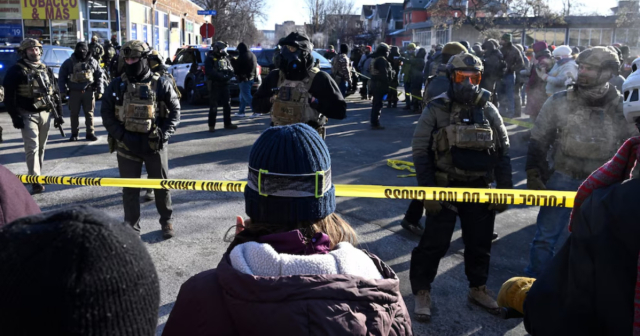West Fertilizer Plant Explosion Leads to Scrutiny of Lack of State Regulation
"There are hundreds of these facilities, and fortunately they don’t explode very often."
- Bryan Shaw, Chairman of the Texas Commission on Environmental Quality
The explosion at the West fertilizer plant killed 14 people, injured over 200, and damaged more than 350 homes. Bryan Shaw (quoted above) and Texas Governor Rick Perry are downplaying the role any regulation could have played in preventing the fire. Paul Burka, Senior Editor at Texas Monthly, had the following to say (emphasis added) about Perry's callous response ("Perry's Response to West", Texas Monthly, 4/24/13):
The governor told the Associated Press that he remains comfortable with the state's level of oversight following last week's massive blast that killed 14 people and injured 200. It's so nice to hear that Perry is comfortable with the state's level of oversight, but perhaps the people who lost their loved ones and property in West might have a different idea. Perry also suggested in his interview that "the majority of Texas residents agree with him." And he knows this because . . . why, exactly? Does that include the survivors in West? Who conducted that poll? This is just Rick Perry engaging in desperate CYA tactics. That isn't leadership--it is an embarrassingly lame response.
Today, Public Citizen Texas, SEED Coalition, Environment Texas, TexasLeague of Conservation Voters, and Texas Campaign for the Environment released a joint statement about the need for better safety standards, oversight, and funding to minimize the risks and dangers at industrial plants. From their statement:
These disasters serve as a reminder of the necessity for strong and effective land use regulations, as well as proper enforcement systems to ensure public safety and prevent toxic releases into the environment. Regulations that reduce the likelihood and size of industrial accidents protect workers, nearby neighborhoods and residents, and minimize the potential loss of life when accidents do happen, as they always will.
State and federal governments must ensure regulatory agencies are adequately funded and have the enforcement staff necessary to be effective in a state the size of Texas.
The Texas Legislature must act now to ensure existing and new regulations protect workers, communities and our state’s natural resources on which we all depend. Waiting for the conclusion of the investigation in West, will leave our part-time Legislature unable to act until 2015. The people of Texas cannot afford that much delay.
In the wake of the explosion, Texas' local news organizations - especially the Dallas Morning News - are investigating the lack of state and national regulation for these plants. Below is a list of key facts and information about the explosion collected from those stories, along with a list of the best reporting from Texas' local press on the explosion.
{C}
Warning of Leak in 2006
In 2006, a West police officer called a company employee to tell him an ammonia tank valve was leaking. The employee confirmed the leak and “took the NH3 [ammonia] tank out to the country at his farm,” according to a handwritten note. “West Police followed him.”
That employee, Cody Dragoo, was killed in last week’s explosion. (Source)
It took TCEQ 11 days to drive the 17 miles from Waco, TX to West, TX to check on a complaint about the smell of ammonia (Source).
Texas GOP Officials on Possibility of Future Oversight
Congressman John Carter, R-Round Rock:
Rep. John Carter, R-Round Rock, called for “a renewed focus on industrial infrastructure vulnerabilities.”
“This horrific incident — whether a result of criminality or an accident — is a reminder of the importance of such protections and that our vulnerabilities do not only reside in large cities.”
Congressman Bill Flores, R-Waco (who initially declined to visit the site, which is in his district):
Rep. Bill Flores, whose district includes West, said there should probably be a more “holistic” inspection and review process. Flores suggested having agencies such as the Occupational Safety and Health Administration and the Environmental Protection Agency conduct inspections and reviews together.
“If they all went in at one time and issued a consolidated report, I think we’d probably be well-served by that,” said Flores, who plans to travel to West on Wednesday for the first time since the explosion.
“Listen, if there’s a better way to do this, we want to know about it,” Perry told reporters. “If there’s a better way to deal with these events, we want to have that discussion, whatever that might be.”
Oversight Failure
"Texas’ environmental agency knew in 2006 that West Fertilizer Co. was handling 2,400 tons a year of potentially explosive ammonium nitrate in a warehouse near schools, houses and a nursing home, documents show."
- West Fertilizer Co. did not tell the U.S. Department of Homeland Securiy that it was "storing 1,350 times the amount of ammonium nitrate that would normally trigger safety oversight" (Source)
- However, TCEQ knew about the explosive ammonium nitrate at the facility (Source)
- The plant had not been inspected by OSHA since 1985 (Source)
- The plant had not been inspected by the TCEQ since 2006 (Source)
- In 2004, the EPA cited West Fertilizer for not filing a risk-management plan required by federal law (Source)
- The plant was inspected by the federal Pipeline and Hazardous Materials Administration in 2012, and was fined $5,250 following an inspection that "found improper labeling of storage and a failure to 'develop and adhere to a security plan'" (Source)
- West Fertilizer Co. told the EPA it "did not have the mandatory safety mechanism to protect locals from fires and explosions" and "'was not handling flammable materials” and “did not have sprinklers, water-deluge systems, blast walls, fire walls or other safety mechanisms in place at the plant'" (Source)
- From the Austin American Statesmen:
Over the past 10 years, West Fertilizer Co., whose operations are regulated by a large handful of government agencies, has been fined or disciplined by at least three different state and federal agencies for safety or licensing violations, a record officials called “average.”
The largest fine, for $10,000, was levied last year by the U.S. Pipeline and Hazardous Materials Safety Administration, when West Fertilizer failed to write a security plan to transport anhydrous ammonia, a chemical fertilizer stored under pressure. The company said it couldn’t afford to pay that amount, and the penalty was halved after West Fertilizer agreed to correct the oversight, agency documents show.
In 2006, the U.S. Environmental Protection Agency also fined West $2,300 after discovering the company had failed to update its risk management plan, which includes an analysis of the potential consequences of a worst-case accident, as well as its emergency planning information. (Source)
TCEQ Commissioner Bryan Shaw Falsely Blames State Chemist
- In a video interview with the Texas Tribune, Shaw attempts to deflect attention from the TCEQ by saying the state chemist visited the site 12 times in the past year (Source)
- However, documents obtained by the Texas Tribune found that "the agency visited the plant four times in 2012 and four times in 2011 to analyze chemicals for proper labeling"
- Shaw later told the Dallas Morning News that both the state chemist and the federal Pipeline and Hazardous Materials Safety Administration had oversight of the plant's explosive materials. The state chemist is blocking an open records request by the Dallas Morning News and others about its work (Source). From the Dallas Morning News:
Shaw identified the state chemist and the federal Pipeline and Hazardous Materials Safety Administration as having responsibility for regulating fertilizer fire and explosion risks.
But the regulatory scrutiny for ammonium nitrate storage that Shaw outlined does not exist. The federal pipeline agency governs only transportation, not storage. And the head of the state chemist’s office, Tim Herrman, said his agency has no legal authority or expertise to pursue fire or explosive safety at places that store ammonium nitrate.
“That doesn’t fall within our purview, and it’s fair to say we are not fire-safety experts,” Herrman said. “Nor is that part of our inspection activity, nor is that in our law or rules.”
Key Quotes
- "There are hundreds of these facilities, and fortunately they don’t explode very often." - Bryan Shaw, Chairman of the Texas Commission on Environmental Quality (Source)
- “The [TCEQ] regional investigator described the area surrounding the facility as residential and farm land...There are two schools located within 3000 ft of this facility. However, the impact potential is described by the [regional TCEQ office] as low. The nearest off property receptor, a residence, is 350 ft from the plant.” - from notes written by a TCEQ inspector (Source)
- "That doesn’t fall within our purview, and it’s fair to say we are not fire-safety experts. Nor is that part of our inspection activity, nor is that in our law or rules.” - Tim Herrman, head of the state chemist’s office (Source)
- “A basic concern here is that the chemical ammonia, NH3, is very weakly regulated at the federal and state level, or else this accident would not have likely occurred." - Neil Carman, a Ph.D. chemist with the Sierra Club in Texas and a former state environmental inspector (Source)
- “You would think Texas would have learned its lesson from Galveston. This is not rocket science. We’ve had this happen so many times.” - Richard John Smythe, a Ph.D. chemist with 40 years of experience investigating fires and explosions in Canada and the U.S. (Source)
- "That's just a god awful amount of ammonium nitrate." - Bryan Haywood, owner of a hazardous chemical consulting firm in Milford, Ohio (Source)
Best Overview Pieces on the West Explosion
- Dallas Morning News Central Hub for All Coverage on West Explosion (updated regularly)
- "Texas Explosion Seen as Sign of Weak U.S. Oversight", Bloomberg, 4/19/13
- "How deep did safety checks at West Fertilizer go?", Dallas Morning News, 4/23/13
- "Blast damage in West more extensive than anticipated", Austin American-Statesman, 4/23/13
- "Texplainer: Who Oversees Texas' Fertilizer Plants?", Texas Tribune, 4/23/13
Additional Reporting on West Explosion
- "West blast follows years of state, federal agencies overlooking danger potential", Dallas Morning News, 4/18/13
- "Officials Search for Answers After Explosion in West," Texas Tribune, 4/18/13
- "West Explosion Raises Regulatory Questions," Texas Tribune, 4/19/13
- "In Photos: Fertilizer Plant Explosion in West, Texas" State Impact Texas, 4/20/13
- "West firefighters knew of ammonium nitrate; how it affected response unclear", Dallas Morning News, 4/22/13
- "Environmentalists seek to draw on West explosion in legislative matters", Austin American-Statesman, 4/22/13
- "Texas fertilizer company didn't heed disclosure rules before blast", Reuters, 4/20/13
- "West Fertilizer Co.’s environmental compliance problems go back decades", Dallas Morning News, 4/22/13
- "Appeal filed to AG seeking block to release West Fertilizer documents", Dallas Morning News, 4/22/13
- "TribLive: Shaw and Marston on the West Explosion," Texas Tribune, 4/22/13
- "After West Fertilizer Explosion, Concerns Over Safety, Regulation and Zoning", State Impact Texas, 4/22/13
- "Investigators rule out some causes in West explosion", Dallas Morning News, 4/23/13
- "Perry's Response to West", Texas Monthly, 4/24/13
Ongoing Stories on Environmental Regulation in Texas, Not Related to West
- "Senate Committee Votes Out Legislation Limiting Citizen Challenges to Polluters", Texas Observer, 4/16/13
- "Texas Nuclear Reactor Restarts, Four Months After Fire", Texas Tribune, 4/23/13
- "Texas Senate OKs ‘Hotter’ Waste for West Texas", Texas Observer, 4/23/13
Criticism of Media Coverage of West Explosion
- "REPORT: Cable News Ignores TX Fertilizer Plant's Regulation Violation", Media Matters, 4/23/13
- "Did the national media shortchange coverage of the tragic explosion in West?", Dallas Morning News, 4/23/13
- "Famed EPA Whistleblower Hits Media Coverage of 'Criminal' Texas Plant Explosion", The Nation, 4/23/13
DONATE
Your donation supports our media and helps us keep it free of ads and paywalls.








